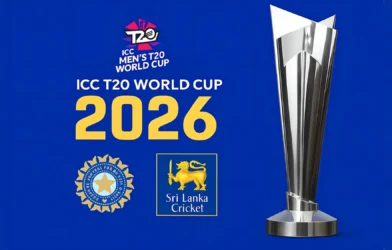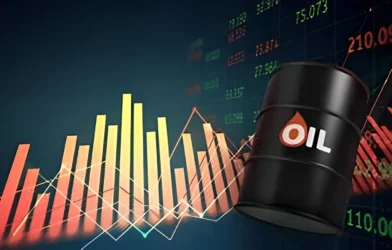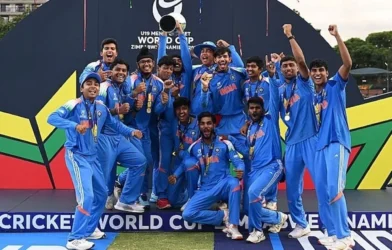Author: Aarya Shah | EQMint | General News
In a powerful and rare rebuke from within his own party’s legislature, 21 members of the U.S. Congress have called on President Donald Trump to reverse recently imposed tariffs on Indian exports and reset a rapidly deteriorating relationship between Washington and New Delhi. The letter, dated October 8, 2025, argues that the punitive trade measures are doing serious harm — not just to Indian manufacturers, but to American consumers, supply chains, and strategic interests alike.
Escalating Tariffs Ignite Backlash
According to the lawmakers’ appeal, Trump’s administration first introduced a 25 percent “reciprocal” tariff on Indian goods, and then piled on an additional 25 percent duty tied to India’s continued purchase of Russian energy, bringing the total to an unprecedented 50 percent. These sweeping duties, the letter asserts, have inflicted significant damage: “These punitive measures have hurt Indian manufacturers while simultaneously raising prices for American consumers and damaging the intricate supply chains that American companies depend on.”
They fear the tariffs unfairly single out India and destabilize trust in bilateral commerce. The coalition contends that the strain is already visible: rising costs for U.S. firms, broken logistics channels, and lost confidence among Indian partners.
Economic Fallout on Both Sides
U.S. lawmakers emphasize that India is more than a trade partner — it is a critical node in global supply chains. American firms rely on Indian inputs in fields from semiconductors and energy to healthcare. Meanwhile, Indian investments in America have created jobs and economic ripple effects across U.S. communities.
“The trading partnership supports hundreds of thousands of jobs in both countries,” they write. The tariff escalation, they warn, jeopardizes this balance. Already, U.S. companies are facing supply disruptions and cost hikes, which could weaken their global competitiveness.
Strategic Stakes: A Danger of Drift
Beyond economics, the letter frames the tariff policy as a geopolitical misstep. The signatories caution that sustained punishment may push India closer to spheres of influence that Washington sees as adversarial — most notably, China and Russia.
India’s role in the Quad (a security dialogue including the U.S., Japan, and Australia) underscores its value as a democratic stabilizer in the Indo-Pacific. The lawmakers stress that Washington needs to “reaffirm America’s commitment to India” and pursue “recalibration, not confrontation.”
Bipartisan Voices, Indian-American Advocates
The letter is signed by a mix of Democratic and Republican lawmakers, including prominent Indian-American figures such as Ro Khanna and Raja Krishnamoorthi, alongside others like Deborah Ross and Pramila Jayapal. Their districts include substantial Indian-American populations, making this appeal both a strategic foreign policy initiative and a domestic constituency concern.
In highlighting the scale of impact, the legislators note that in August 2025 the tariff move had already provoked criticism from U.S. trade bodies and think tanks. Some observers argued that targeting India, instead of larger purchasers of Russian oil, defied logic — and risked damaging America’s reputation as a reliable partner.
India’s Response and Diplomatic Tightrope
India has responded cautiously but resolutely. New Delhi has publicly decried the tariffs as “unfair, unjustified and unreasonable,” and remains firm in its energy strategy, citing sovereign policy prerogatives. India has also signaled its willingness to engage in talks to resolve trade friction, while maintaining that it won’t buckle under coercive measures.
The broader diplomatic fallout is real. Trust between the countries — built over decades through defense cooperation, educational exchange, and technology partnerships — is at risk. Analysts warn that if the U.S. continues to treat India as a subject of pressure tactics, rather than as a peer, it could irreversibly damage the fabric of long-term strategic alignment.
What Comes Next?
The lawmakers implore Trump to initiate a policy review, roll back the 50 percent tariffs, and reengage Indian leadership in good faith dialogue. “Swift action” is their call. They argue that the United States must act decisively to prevent this moment from defining the direction of U.S.-India relations for years to come.
In Washington, the letter has stirred commentary and introspection. Some view it as a manifestation of congressional checks on executive overreach. Others see it as a wake-up call: America’s grand strategic posture cannot hinge solely on brute trade leverage.
India, for its part, will be watching closely — ready to defend its sovereignty, but open to restoring trust if American rhetoric and policies evolve. As both nations approach a crossroads, the weight of this correspondence may be felt long beyond the ink on paper.
Disclaimer: This article is based on information available from public sources. It has not been reported by EQMint journalists. EQMint has compiled and presented the content for informational purposes only and does not guarantee its accuracy or completeness. Readers are advised to verify details independently before relying on them.









